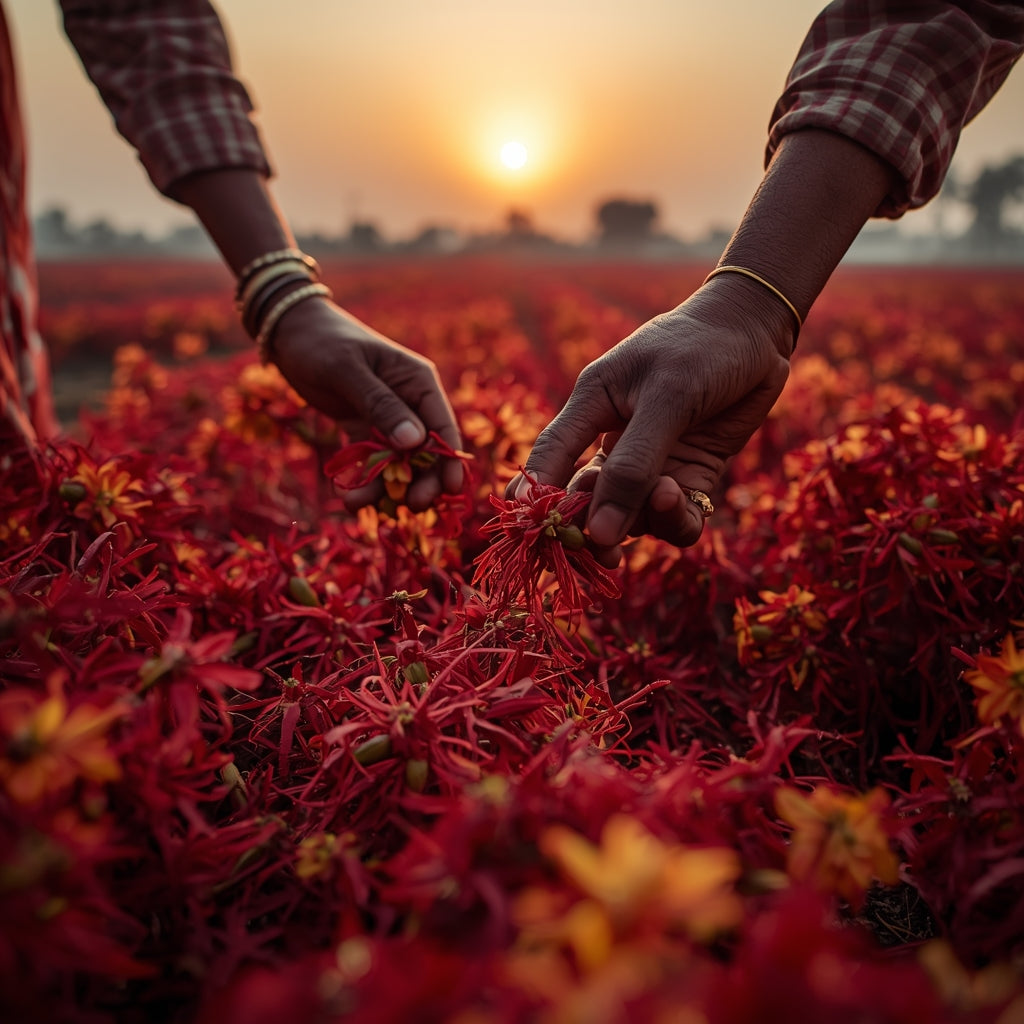
Why Adaptogens Work for Skin
Share
In a world where stress is almost as constant as the sun, our skin often bears the brunt. At Amohas, we believe that nature offers not just relief but resilience. Enter adaptogens — ancient botanical allies that have long supported the body and mind, and are now making waves in skincare.
But what exactly are adaptogens, and why do they work so well for the skin?
What Are Adaptogens, Really?
Adaptogens are a special class of botanicals that help the body adapt to physical, environmental, and emotional stress. Traditionally used in Ayurveda and Traditional Chinese Medicine, these herbs — like Ashwagandha, Rhodiola, and Reishi mushroom — support homeostasis, or balance, across systems.
Unlike single-action compounds, adaptogens modulate stress responses rather than suppressing or overstimulating them. Think of them as tuning forks for your body: they restore harmony where there’s disharmony.
Why the Skin Needs Adaptogens
The skin isn’t just a barrier — it’s a dynamic, responsive organ that reacts to everything from UV rays to pollution, blue light, harsh products, and yes, stress. Chronic exposure to stressors can lead to:
-
Premature aging
-
Dullness
-
Hyperpigmentation
-
Barrier disruption
-
Inflammation and flare-ups
Here’s where adaptogens shine: they don’t just calm the surface — they work at a cellular level to reinforce the skin's innate ability to bounce back.
The Science Behind Adaptogens in Skincare
Emerging research is now catching up with ancient wisdom. Modern studies have shown that adaptogens contain bioactive compounds like flavonoids, triterpenoids, and polyphenols that:
-
Reduce oxidative stress: Neutralizing free radicals that cause aging and damage.
-
Regulate cortisol effects: Helping prevent the stress hormone from breaking down collagen and triggering inflammation.
-
Boost mitochondrial function: Enhancing cellular energy for repair and renewal.
-
Improve skin barrier integrity: Supporting hydration and lipid balance.
For instance, Rhodiola rosea has demonstrated potent antioxidant capacity, protecting skin cells from UV-induced damage. Similarly, Ashwagandha has shown to modulate inflammatory markers and support collagen production.
Adaptogens don’t offer a “quick fix” — instead, they encourage deep, sustainable skin health, making them perfect for daily rituals rooted in care rather than correction.
Adaptogens We Love at Amohas
Our formulations lean into the wisdom of adaptogens that work synergistically with the skin. Some of our favorites include:
-
Blue Lotus: A calming adaptogen rich in flavonoids, known to soothe reactive skin and promote clarity.
-
Centella asiatica (Gotu Kola): Known for its wound-healing, collagen-boosting properties, it’s a hero for sensitive, compromised, or aging skin.
-
Ashwagandha: A powerhouse in reducing visible signs of stress, improving texture, and defending against photoaging.
Final Thoughts: From Surviving to Thriving
Adaptogens invite your skin to do what it was designed to do — protect, repair, and glow. At Amohas, we view skincare as a ritual of resilience. Using adaptogens isn’t just about combating damage — it’s about building strength over time, the plant-powered way.
If your skin feels tired, reactive, or in need of something deeper than hydration, adaptogens might just be your skin’s new best friend.
References
-
New York Society of Cosmetic Chemists. (2023). From Stress to Strength: The Science and Promise of Plant-Based Adaptogens in Skin Protection. Link
-
Zakaria, Z. A., et al. (2023). An Overview of Herbal Adaptogens for Skin Health: Biochemical Mechanisms and Cosmetic Applications. Cosmetics, 10(6), 155. Link
-
Joshi, R., et al. (2023). Adaptogenic Herbs in Skin Care: An Ayurvedic Perspective. Journal of Ayurveda and Integrated Medical Sciences, 8(3), 59–64. Link
